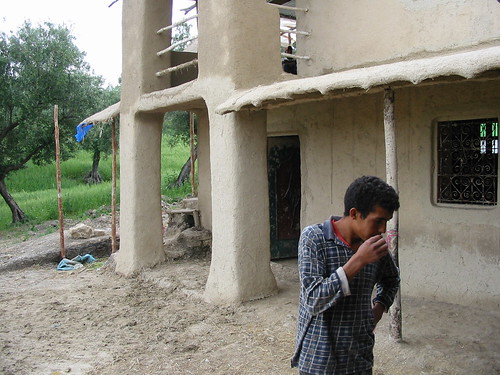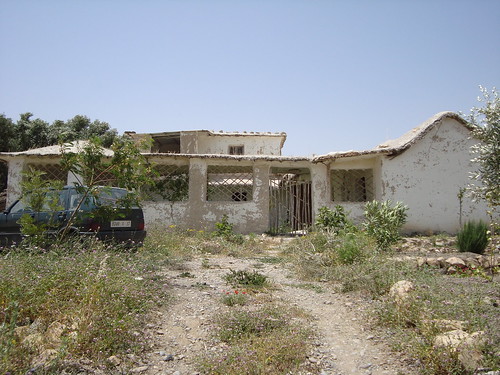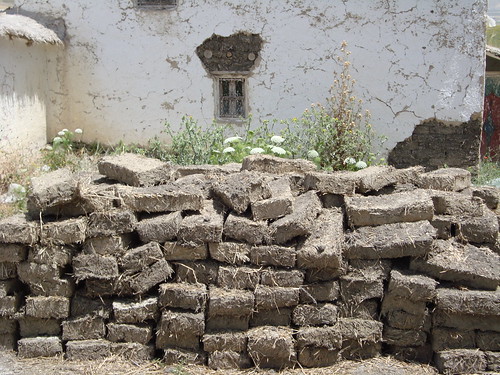And yesterday we saw the result of this encounter.
Hamadcha danse and music, mixed with Manu's bass and Julien's crazy percussion.
Great night.

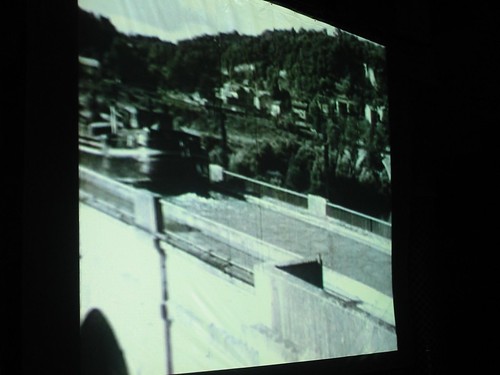
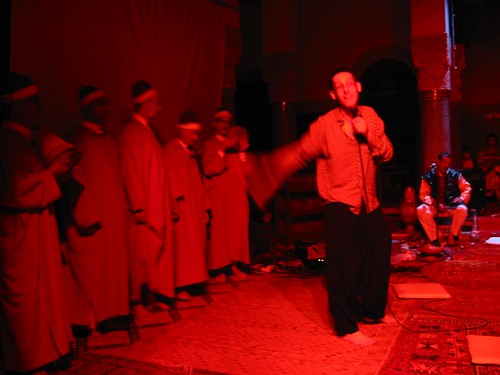

We understood it as soon as we entered the hospital.

Imagine how brave is Aziz. He didn’t sleep much during those two weeks, because of Bachir’s screams and pain. He barely got out of the hospital, except to buy Bachir’s medication and some yogurts. Just try to imagine. The room with four patients, and their sons or fathers. The small bathroom. Bachir screaming all night, waking everybody in the service.
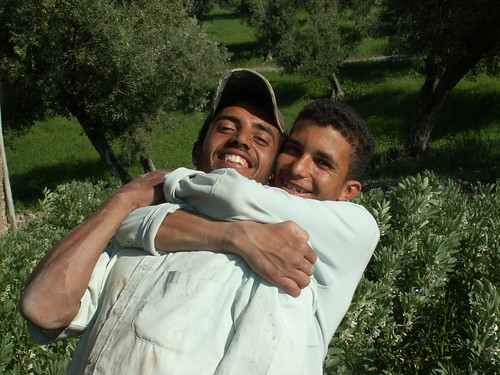
You know Bachir.
Or maybe not yet.
He's our friend, and he takes care of our house. We've know him since he was14. At the time we hired him, along with his mother, to make the white rendering of the room that is today our office. Yassine, who is responsible for our coming to Ouled Mgatel in the first place – his family comes from the douar – introduced him to us. We trusted him at once, and, with Fouad, our neighbor's son, he became the proud keeper of our mudbrick house – but also a worker, a gardener, and even sometimes a cat-sitter.

Photo Gabriel Feret
Bachir's family is one of the poorest of Ouled Tahar, the douar where he lives, near Ouled Mgatel.
His father is more that seventy years old, his mom works all day, keeping the house clean and fixing things, cooking, baking bread, going to gather twigs for the oven and food for their animals. She is from the Rif mountains, and her family still lives there. They have more money that her husband's family, but they barely give her anything. Just big bags of olives that she brings from the north every once in a while.
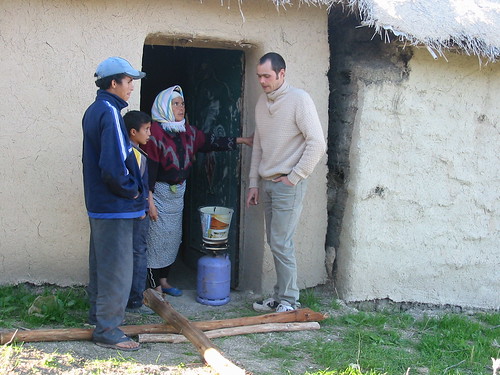
You've already seen Smaïn, Bachir's little brother. They also have a big brother, who left for Casablanca, hoping to find more money and a better life, and who watches car for a living.
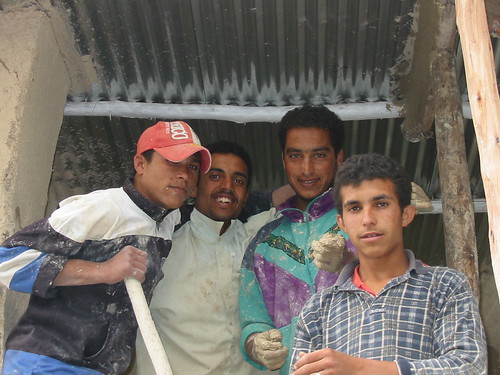
On the far left, Bachir's brother Mohammed
Bachir is the one that brings money to the family– his brother contributes too I guess, but he's not often here. Thanks to Bachir, the family was able to buy a cow. He ears some money with the job he has in our house, and we've always helped him when he needed medication for his mom, or when he couldn't reimburse his loan.
Smaïn is still too young to work in the fields, and their dad is too old to do anything else than going to the well to get water, with the donkey.
In this area – Ouled Jamaa, near Fez -, where life is hard for everybody, Bachir is one of the less lucky. A family that don't have any piece of land. A big brother who lives in the big city, and a dad too old to feed his family. At 19, Bachir is responsible for his family – I say 19, even though on his ID card it's written that he was born in 1981. That often happens in Morocco, and it doesn't surprise anybody, because a lot of people simply don't know which year they were born in.
How to describe Bachir ? As a very reliable young man, strong, smart, who didn't have the chance to go to school – Fouad did, and he can read. That makes a huge difference in his life. Bachir is rarely in a good mood when he wakes up. It used to make us laugh, last year, when we were doing some work in the house. He would open the door without knocking, not look at us, mumble « sabah el khir », (good morning), and make some tea. After a few hours of work, and after smoking some kif, he would become more friendly, would smile, and lunch would always be jokes and laughter, with Fred and Fouad.
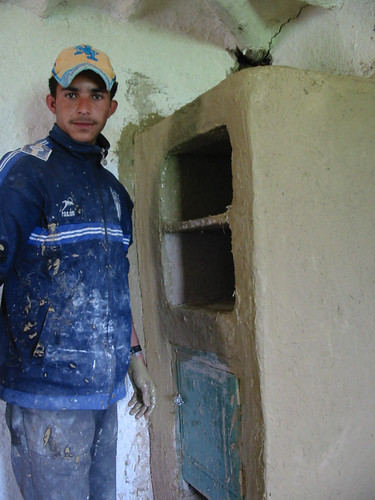
Unfortunately, we don’t know if he'll be himself again. Six weeks ago, after a hard day of making mudbricks with Aziz and Fouad, he said having a headache, and collapsed on the ground. A few hours later, in Fez, the doctors began suspecting he had a stroke.
In my next post, I’ll tell you about the awful night we spent in Rabat with him, desperately trying to get a diagnosis, and medication.
Just know that, today, Bachir is much, much better. After more than 2 weeks in the hospital, he came back home, to his family. Even if he’s still very weak, he can walk and speak. Maybe some day we’ll get the old Bachir back. Maybe.
